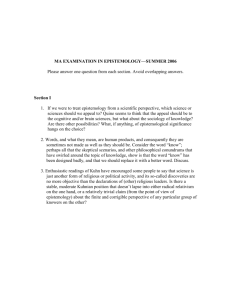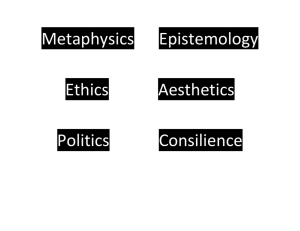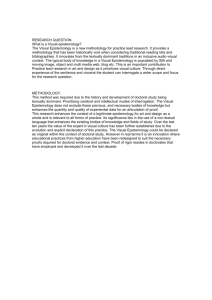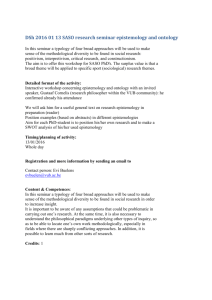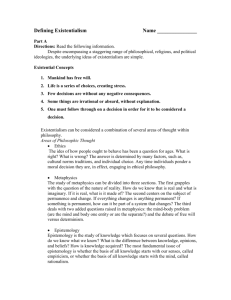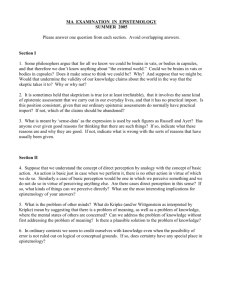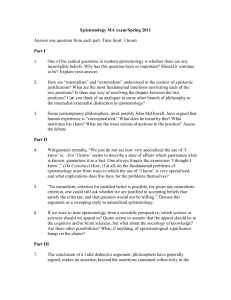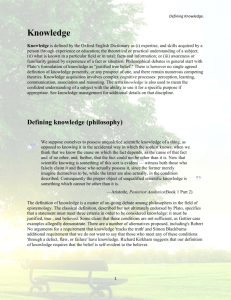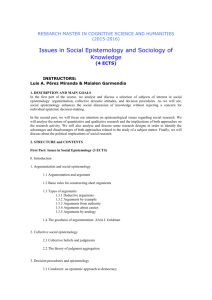W7351
advertisement
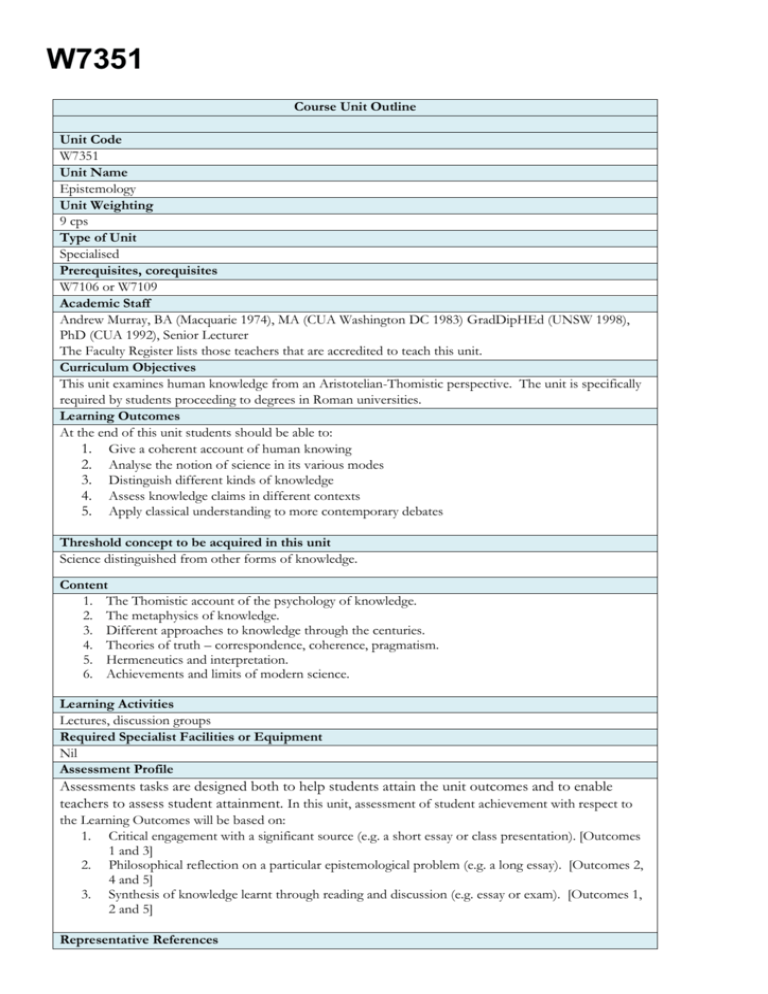
W7351 Course Unit Outline Unit Code W7351 Unit Name Epistemology Unit Weighting 9 cps Type of Unit Specialised Prerequisites, corequisites W7106 or W7109 Academic Staff Andrew Murray, BA (Macquarie 1974), MA (CUA Washington DC 1983) GradDipHEd (UNSW 1998), PhD (CUA 1992), Senior Lecturer The Faculty Register lists those teachers that are accredited to teach this unit. Curriculum Objectives This unit examines human knowledge from an Aristotelian-Thomistic perspective. The unit is specifically required by students proceeding to degrees in Roman universities. Learning Outcomes At the end of this unit students should be able to: 1. Give a coherent account of human knowing 2. Analyse the notion of science in its various modes 3. Distinguish different kinds of knowledge 4. Assess knowledge claims in different contexts 5. Apply classical understanding to more contemporary debates Threshold concept to be acquired in this unit Science distinguished from other forms of knowledge. Content 1. The Thomistic account of the psychology of knowledge. 2. The metaphysics of knowledge. 3. Different approaches to knowledge through the centuries. 4. Theories of truth – correspondence, coherence, pragmatism. 5. Hermeneutics and interpretation. 6. Achievements and limits of modern science. Learning Activities Lectures, discussion groups Required Specialist Facilities or Equipment Nil Assessment Profile Assessments tasks are designed both to help students attain the unit outcomes and to enable teachers to assess student attainment. In this unit, assessment of student achievement with respect to the Learning Outcomes will be based on: 1. Critical engagement with a significant source (e.g. a short essay or class presentation). [Outcomes 1 and 3] 2. Philosophical reflection on a particular epistemological problem (e.g. a long essay). [Outcomes 2, 4 and 5] 3. Synthesis of knowledge learnt through reading and discussion (e.g. essay or exam). [Outcomes 1, 2 and 5] Representative References 1. Bernecker, Sven and Duncan Pritchard (editors). The Routledge Companion to Epistemology. London: Routledge, 2011. 2. Cooper, David E. Epistemology: The Classic Readings. Oxford: Blackwell, 1999. 3. Cover, J. A. and Martin Curd. Philosophy of Science: The Central Issues. New York: W. W. Norton, 1998. 4. Dancy, Jonathan. A Companion to Epistemology. Oxford: Blackwell, 1993. 5. Hetherington, Stephen. Epistemology: The Key Thinkers. Forthcoming 2012. 6. Owens, Joseph. Cognition: An Epistemological Inquiry. Houston, Texas: Centre for Thomistic Studies, 1992. 7. Pritzl, Kurt (editor). Truth: Studies of a Robust Presence. Washington DC: Catholic University of America Press, 2010. 8. Regis, L. M. Epistemology. Translated by Imelda Choquette Byrne. New York: Macmillan, 1959. 9. Simon, Yves. An Introduction to the Metaphysics of Knowledge. Translated by Vukan Kuic and Richard J. Thompson. New York: Fordham University Press, 1990. 10. Steenberghen, Fernand Van. Epistemology. Translated by Martin J. Flynn. London: Joseph F Wagner, 1949. 11. Steup, Matthias and Ernest Sosa (editors). Contemporary Debates in Epistemology. Oxford: Blackwell, 2005. 12. Wood, W. Jay. Epistemology: Becoming Intellectually Virtuous. Leicester: Apollos, 1998.

